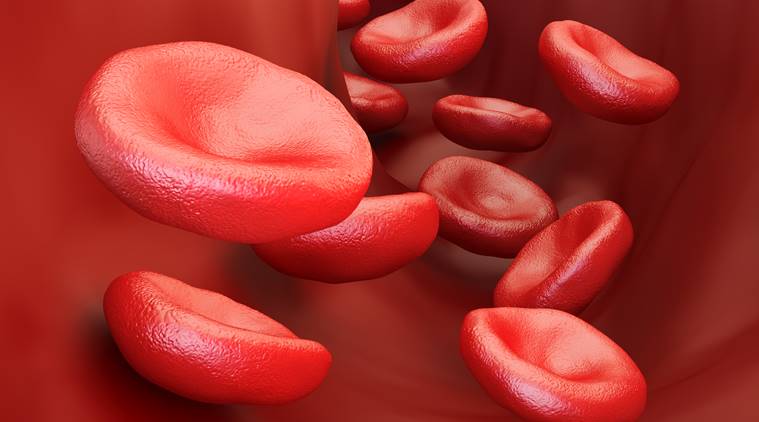An Alexandra Yeo Chair in Haematology at the University of Toronto, Canada, has called on persons living with the Sickle Cell Disease (SCD), to strictly adhere to all prescribed COVID-19 preventive measures to avoid contracting the virus.
Professor Isaac Odame said persons living with the SCD were more susceptible to the virus, adding that with routine outpatient clinics suspended or scaled-down in most centres, in response to the COVID-19 pandemic, contracting the virus by such persons could be catastrophic to their health.
Prof Odame gave the advice in a virtual lecture organised by the Sickle Cell Foundation of Ghana (Foundation), to commemorate this year’s World Sickle Cell Disease Day which was marked on June 19.
The lecture was on the topic: ‘Effects of COVID-19 on a Person with Sickle Cell Disease.’ The lecture formed part of the Foundation’s activities to create awareness about the disease, especially on the management of the disease amid the COVID-19 pandemic.
It was held under the theme: ‘Managing Sickle Cell Disease in the Storm of a Deadly Global Pandemic.’
Prof Odame, who is also the Medical Director, Global SCD Network, said the symptoms of COVID-19 and those of SCD were not very different.
“They include fever, chest pains, difficulty in breathing and pneumonia (acute chest syndrome in SCD), end organ damage and kidney failure,” he said.
He said telephonic consultations and parental visits for prescriptions without the child were encouraged to minimise risk to patients.
Sickle Cell Disease (SCD) is a global health problem affecting millions of people around the world.
It is estimated that more than 300,000,000 individuals worldwide have sickle cell trait (AS), the benign carrier condition, while more than 500,000 infants are born with major haemoglobin disorders inclusive of more than 400,000 with SCD in Africa.
In Ghana, about 15,000 babies are born with SCD every year.
Consultant Psychologist at London North West University Healthcare NHS Trust Haematology and Sickle Cell Centre, Central Middlesex Hospital, Dr Kofi Anie, MBE, explained that SCD caused much distress to patients and their families and posed significant psychosocial problems.
He said the lack of knowledge about the disease, coupled with the myths, misconceptions, and the perception around the SCD remains a challenge which needed to be addressed.
He cautioned the public against stigmatising such persons saying such acts could only cause loneliness worry and worsens their plights.
Speaking on the state of SCD in Ghana, the President of the Sickle Cell Foundation of Ghana, Professor Kwaku Ohene-Frempong, said the country currently has 18 active sickle cell treatment centers but needs about 40 to help in the management of the disease nationally.
He said the Foundation in partnership with the Ghana-Novartis was providing penicillin to children to protect them from infections that might lead to death.
“And now our partnership with Novartis which brought about the ‘Ahodwo’ Programme has made hydroxyurea affordable to Ghanaians. To date Novartis has delivered more than 6,000,000 capsules of hydroxyurea to Ghana and provided the Foundation with support to supervise the training of health workers on the use of the medicine,” he added.
Head of the Department of Virology, Noguchi Memorial Institute for Medical Research, University of Ghana, Professor William Ampofo, , on his part commended government for being proactive in the management of the COVID-19 pandemic, saying “government’s strategy to close borders early and impose mandatory quarantine on travelers arriving from abroad helped in screening for the virus and revealed several imported cases.”
Prof Ohene-Frempong appealed to government to expand the newborn screening programme to help in screening all babies at birth.
World Sickle Cell Day is marked on 19th June every year ever since it was officially designated by the United Nations in December 2008 and first commemorated in June 2009.
The goal is to increase public knowledge and understanding of SCD and related conditions, and the challenges experienced by patients, their families, and healthcare providers.
Latest Stories
-
Environmental protection officers receive training on how to tackle climate change
1 minute -
CLOGSAG vows to resist partisan appointments in Civil, Local Government Service
1 hour -
Peasant Farmers Association welcomes Mahama’s move to rename Agric Ministry
1 hour -
NDC grateful to chiefs, people of Bono Region -Asiedu Nketia
1 hour -
Ban on smoking in public: FDA engages food service establishments on compliance
1 hour -
Mahama’s administration to consider opening Ghana’s Mission in Budapest
1 hour -
GEPA commits to building robust systems that empower MSMEs
1 hour -
Twifo Atti-Morkwa poultry farmers in distress due to high cost of feed
1 hour -
Central Region PURC assures residents of constant water, power supply during yuletide
1 hour -
Election victory not licence to misbehave – Police to youth
1 hour -
GPL 2024/2025: Nations thrash struggling Legon Cities
1 hour -
Electoral offences have no expiry date, accountability is inevitable – Fifi Kwetey
1 hour -
Ghanaians to enjoy reliable electricity this Christmas – ECG promises
2 hours -
Police deny reports of election-related violence in Nsawam Adoagyiri
2 hours -
‘We’re not brothers; we’ll show you where power lies’ – Dafeamekpor to Afenyo-Markin
2 hours

